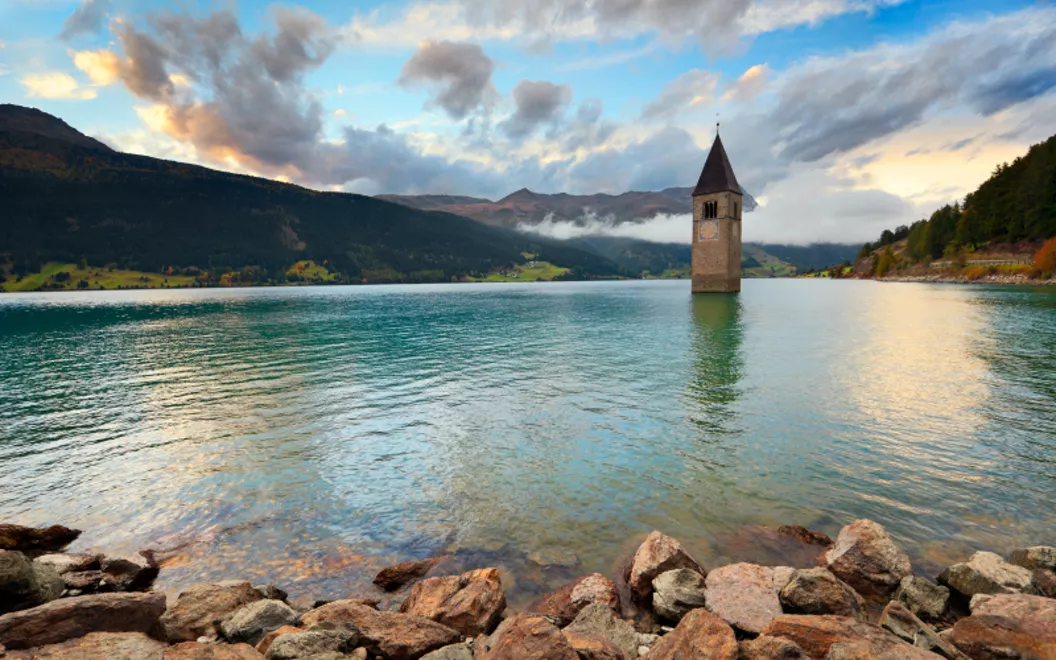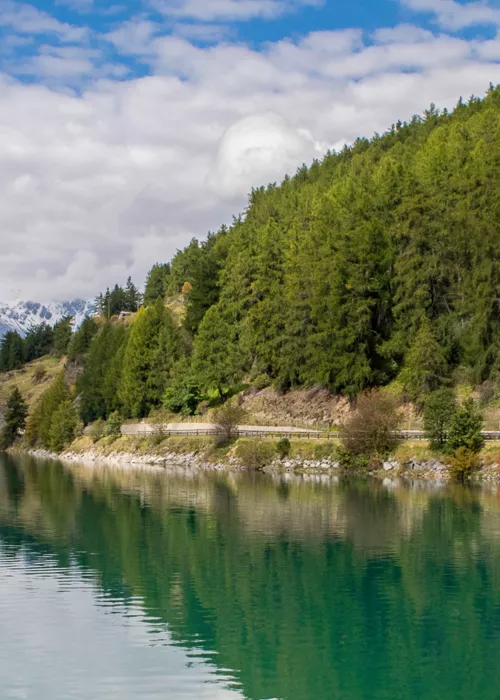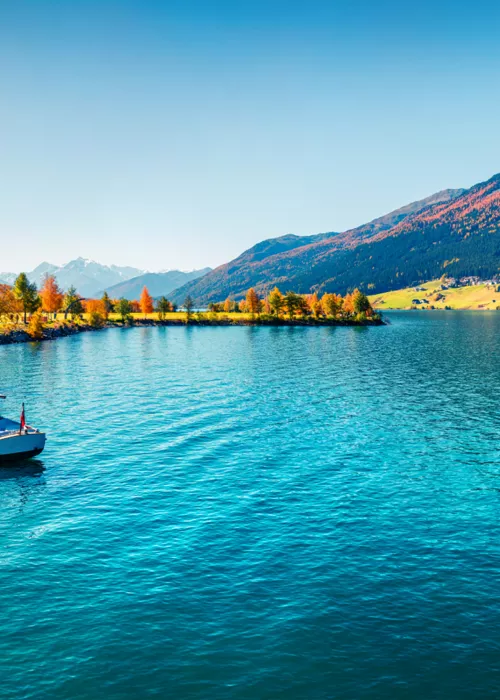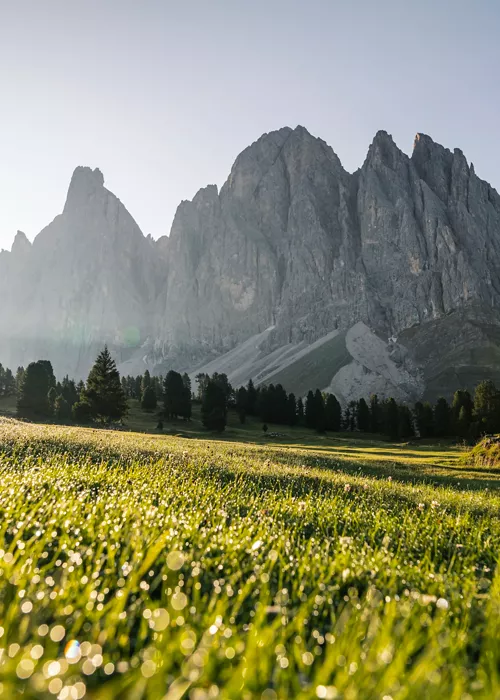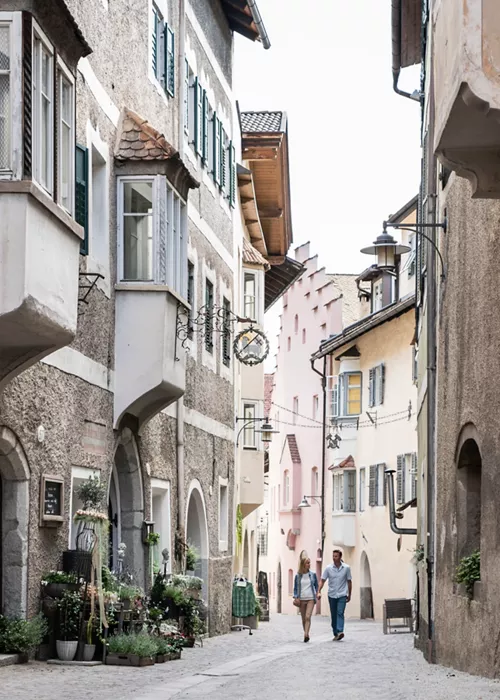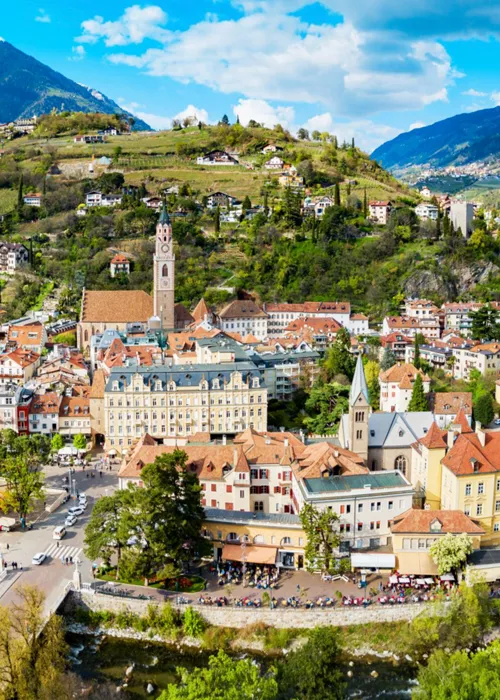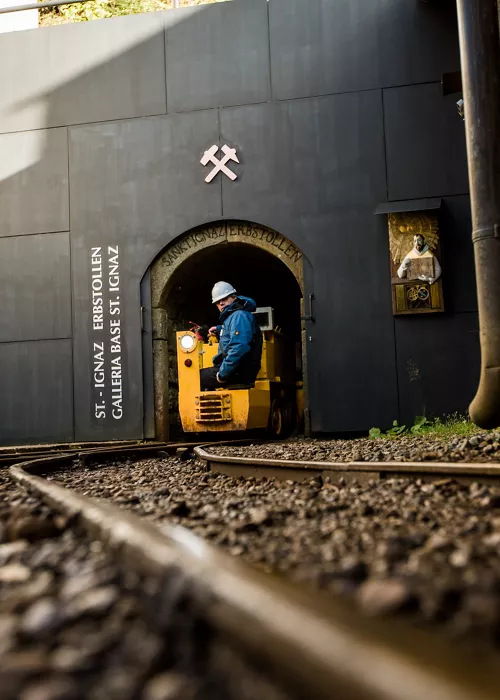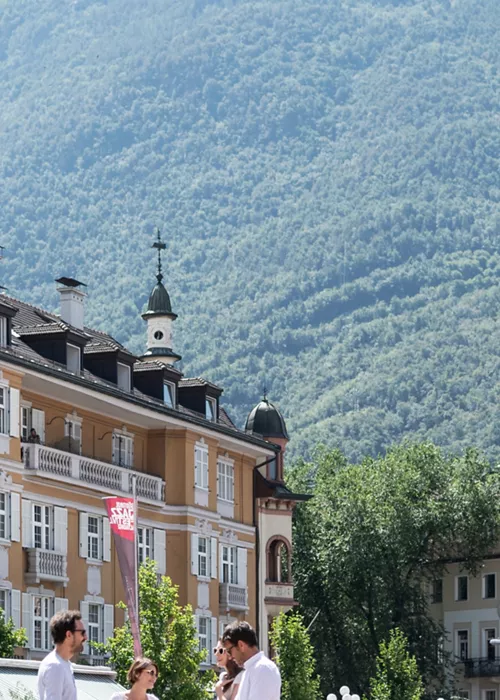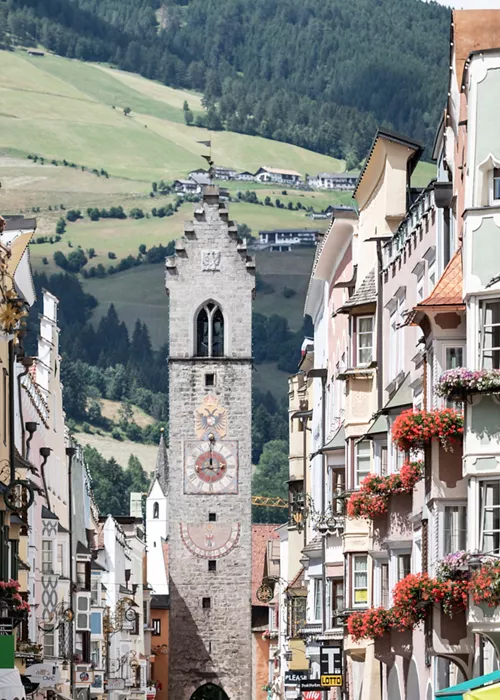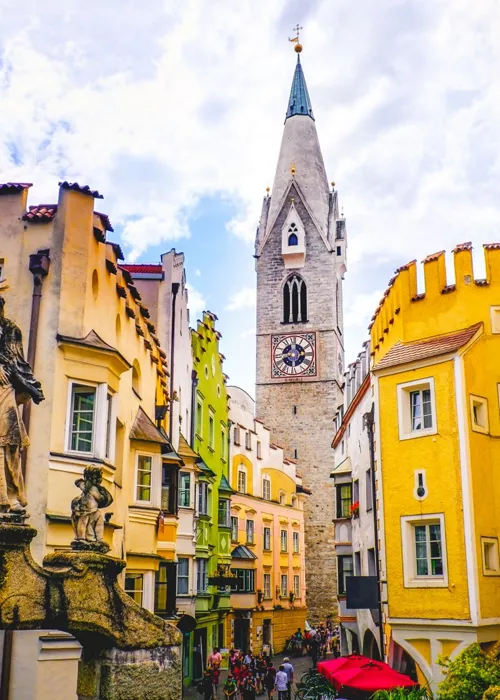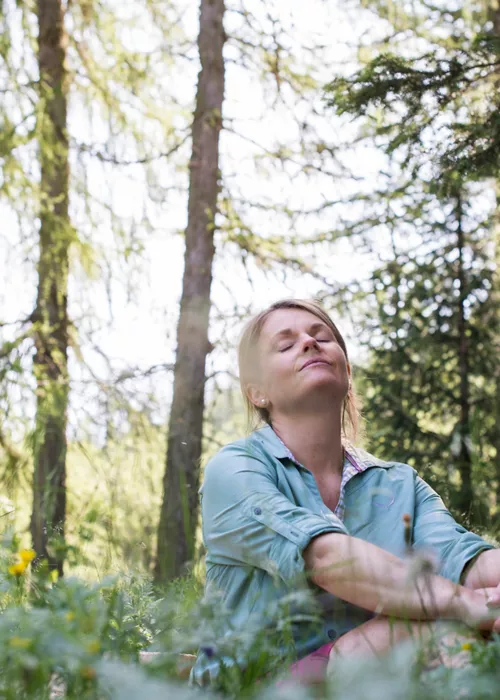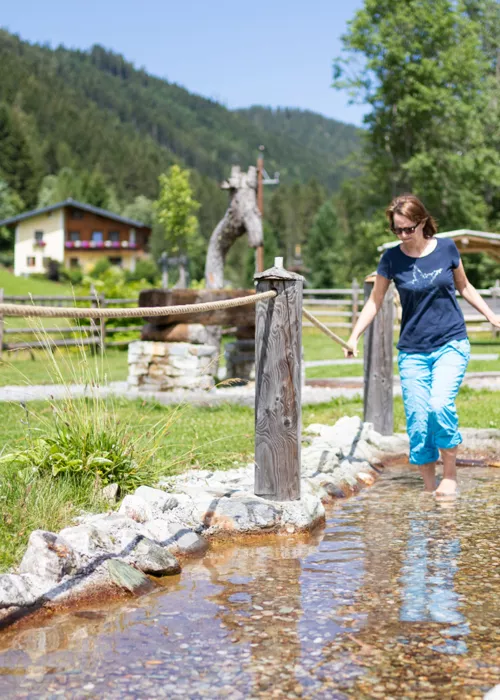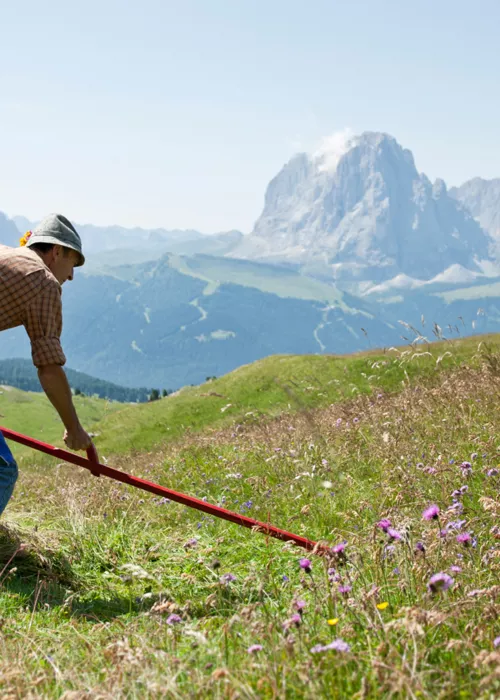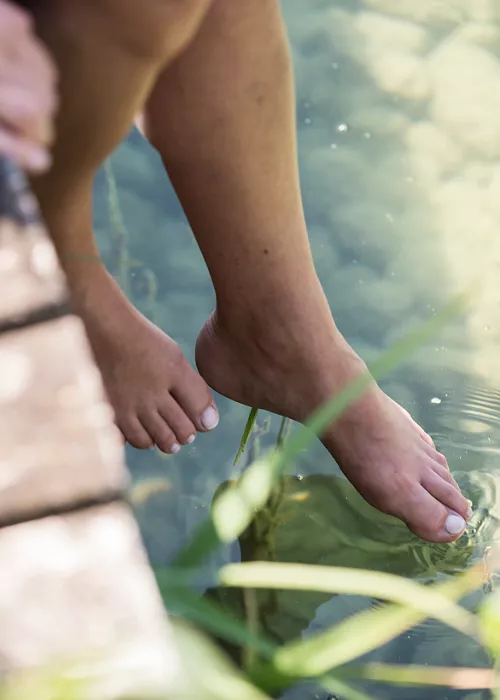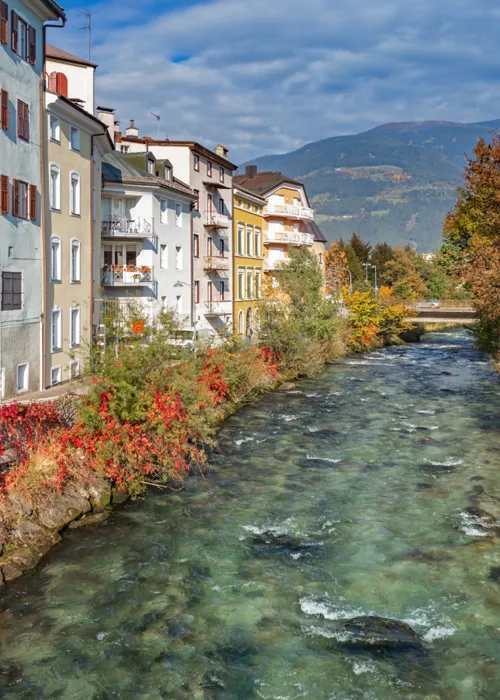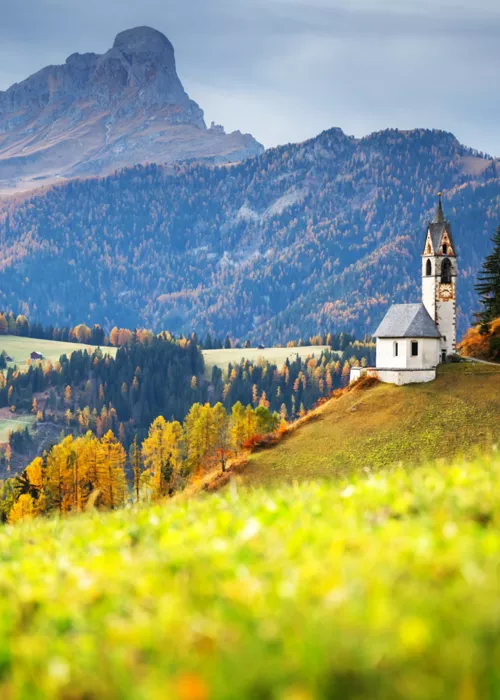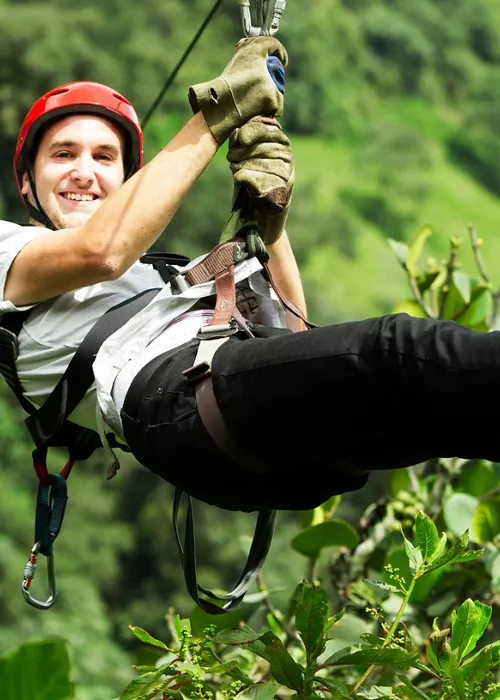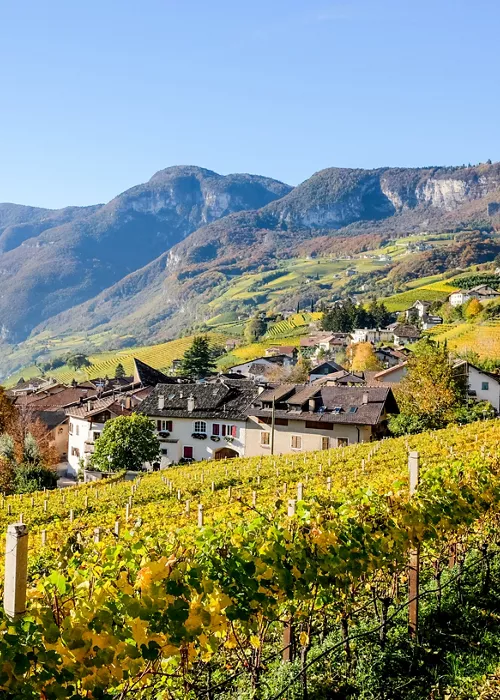The secrets of the sunken village of Curon in South Tyrol
2 minutes
A 14th-century Romanesque bell tower stands alone in the middle of a blue lake. Its height has allowed it to remain the sole protagonist of a place submerged and out of time, which answers to the name of Curon. Legend has it that you can even still hear the bells ringing, at least on windy days.
The magic of Curon, between history and myth
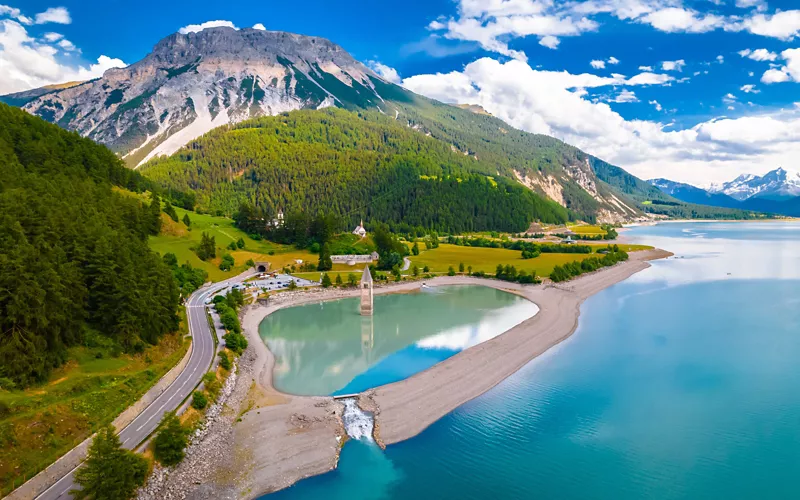
In Curon, Theresa Theiner's parents had an inn, the Traube Post, which ended up being flooded by the water reservoir created in the 1950s as a hydroelectric reservoir. Theresa explains that the family dog, a St. Bernard, continued to swim to the area of the inn for years, not able to accept the flood. Five years had passed since the end of World War II, yet in a corner between Switzerland, Austria and Italy, the population of an entire municipality was dispossessed and their homes destroyed. Curon had disappeared and everyone had become emigrants at home. However, the medieval bell tower is still there tall and proud.
Lake Resia is starring in an Italian original series broadcast by Netflix. The story allows the viewer to experience those incredible moments.
Today, Curon has only four hundred inhabitants. The Reschen Pass is one of the most important links between north and south.
Curon, a step back
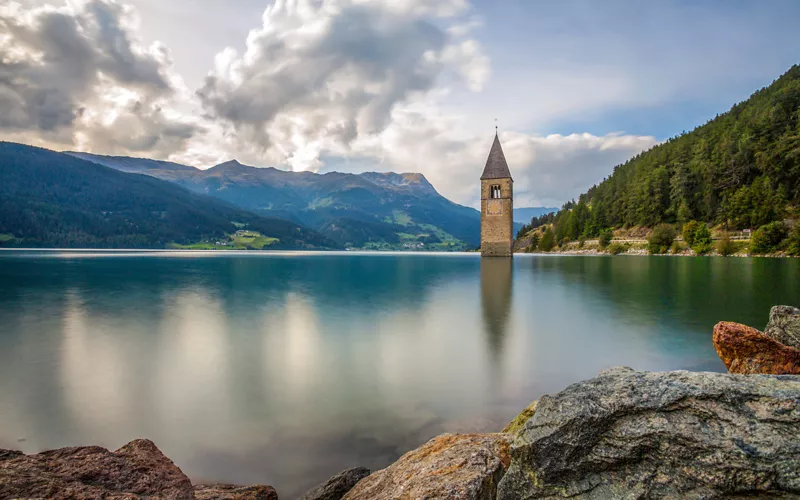
Few people know about Curon's past. Almost a century ago, the idea came about to unite the two natural lakes of the northern Vinschgau into one large lake. In those years, in South Tyrol as elsewhere, the demand for hydropower was high and the consequences of each choice were not always calculated. In the 1940s, flooding was feared in Curon, but rough calculations assumed that the lake could rise only five metres.
When construction on the dam began, problems began and the farmers protested. In 1949, the embankments were dammed and the houses on the edge of the raising dam were demolished by the Montecatini company carrying out the work.
As the water level rose, the village of Curon disappeared under the helpless eyes of the inhabitants and with subsequent compensation considered by many to be derisory. In winter, Lake Resia freezes over and in summer, with an average of 14 degrees, it certainly does not invite swimming. On the other hand, it is a destination for the best kitesurfers in Europe, thanks to the wind.

